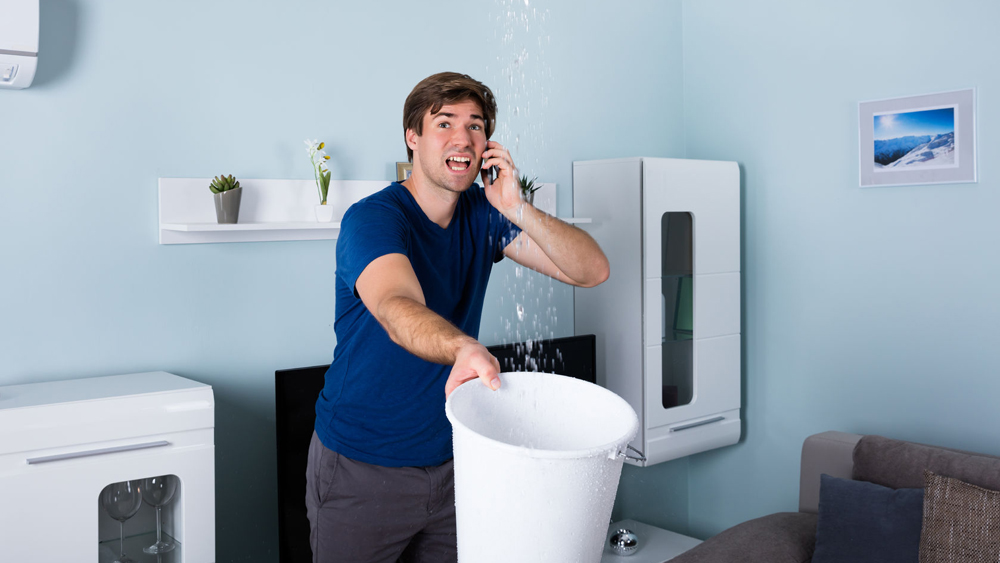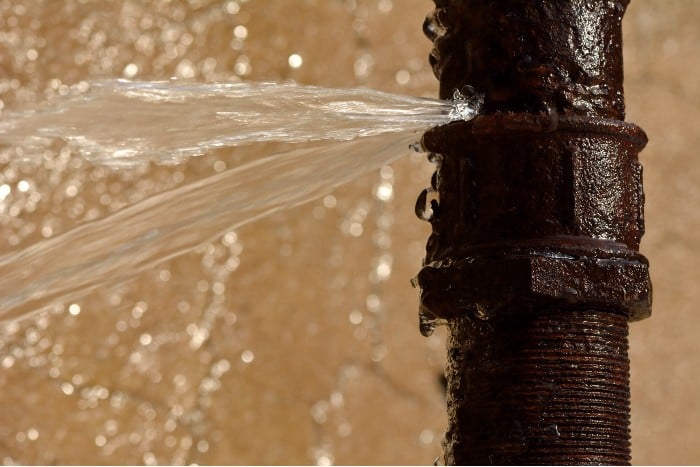The Residential Primary Frequent Leak Factors: Analysis
The Residential Primary Frequent Leak Factors: Analysis
Blog Article
We have discovered this article about Common Water Leaks In House directly below on the web and thought it made perfect sense to relate it with you on this site.

Leakages not just trigger waste of water however can likewise cause unnecessary damages to your house and advertise unwanted natural development. Water leakages might go unnoticed since many of the pipework in our house is hidden. By understanding and also looking for everyday situations that cause leaks, you can safeguard your home from future leaks and unnecessary damage. Today, we will look at six leak causes that might be creating your pipes to trickle.
Encroaching roots
Most water leaks begin outside your house rather than inside it. If you discover an unexpected decline in water pressure, say in your tap, take some time to go out as well as examine your lawn. You may notice damp patches or sinkholes in your backyard, and that could imply that tree origins are getting into water lines creating water to leak out. You can have your plumber look for intrusion, specifically if you have trees or shrubs near your residential or commercial property.
Corroded water supply
This could be the cause of staining or bending on your water pipes. If our plumbing system is old, take into consideration replacing the pipes considering that they are at a higher risk of rust than the more recent models.
Faulty Pipeline Joints
The factor at which your pipelines connect is often the weakest link in the waterline. Pipeline joints can wear away over time, resulting in water leaks. Regrettably, most of pipe joints are not quickly visible. If you have noisy pipelines that make ticking or banging sounds, specifically when the hot water is turned on, your pipe joints are possibly under a lot of pressure. It is recommended to have your plumber check your system annually.
Instantaneous temperature level modifications.
Extreme temperature level modifications in our pipes can create them to broaden and get suddenly. This growth as well as tightening may create fractures in the pipelines, particularly if the temperature level are below freezing. It would be best if you watched on how your plumbing functions. The presence of the previously mentioned scenarios regularly indicates a high danger.
Poor Water Connectors
Sometimes, a leak can be triggered by loosened tubes and also pipelines that supply your appliances. More often than not, changing is what creates the loose water Connections. You may locate in the case of a washing maker, a hose may spring a leak as a result of trembling throughout the spin cycle. In case of a water connections leak, you might notice water running directly from the supply line or pools around your appliances.
Blocked Drains
Blocked drains pipes could be bothersome and also inconveniencing, but they can in some cases end up triggering an overflow causing rupture pipes. Keep eliminating any type of materials that may go down your drains that could clog them to stay clear of such aggravations.
All the above are causes of leaks yet not all water leakages result from plumbing leaks; some leakages might come from roof leaks. All leaks should be fixed right away to avoid water damages.
Leakages not only create waste of water however can also create unnecessary damage to your house and advertise unwanted natural growth. By understanding as well as looking for everyday scenarios that cause leakages, you can protect your house from future leakages and unneeded damages. Today, we will look at 6 leak triggers that might be causing your pipelines to drip.
At times, a leak can be created by loose hose pipes and also pipes that provide your home appliances. In case of a water links leak, you may discover water running directly from the supply line or pools around your home appliances.
Tell-Tale Signs of a Water Leak
The Sound of Running Water
If you’re hearing water running, your first step should be to check your faucets, toilet valves, and outdoor spigots. If everything if status quo, take an exact reading of your water meter and don’t use the water for a few hours. Then, take another meter reading. If there has been no change, that means water is not running (and maybe it’s time to have your hearing checked!). If the reading has changed, however, this indicates that water is indeed flowing and you most likely have a leak.
Wet or Damp Floors
You’re walking across your carpet and suddenly squish—your sock is soaked! The dog doesn’t look guilty and your child swears they didn’t spill anything. That means you’re likely looking at sewer leakage. Now, it’s easy to just soak it up with a towel and call it a day; however, this won’t stop the leak. Ignoring the problem allows moisture to build up, ultimately causing mold or mildew. Not only is this smelly, it can be very toxic and harmful to children, the elderly, pets, and those with weak immune systems. Don’t risk the health of your home and your family—call in a professional to take care of the problem.
Foul Odors
If there’s an unpleasant smell in your home and you can’t locate the source, don’t just light a candle or spray some Febreze. Funky smells are often due to mold and mildew, which spread fast under ideal conditions (optimal temperature and level of humidity). Growth begins within about 24-48 hours, and spores start to colonize in 3-12 days, becoming visible to the eye within about 18 days. If you think the odor is leak-related, get a plumber out as soon as possible to mitigate damage from rapid fungi growth (and rid your home of the foul odor).
Overgrowth in the Lawn
Unless you didn’t fertilize your lawn evenly, a lush patch of grass in a select area of your lawn, or concentrated wet spots, indicate pipe leakage which is acting as a fertilizer. Left untreated, hazardous bacteria in the underground waste will quickly turn into a messy situation, going from lush growth to lawn destruction.
Wall Cracks
Over time, even the littlest of leaks can cause cracks in the foundation of your home and compromise the entire structure. How does it happen? The leak continues hammering away at the same spot in the ground beneath your home, eventually causing it to shift slightly. Now, you’d never feel this shift, but your walls will. This can be a very dangerous situation, so if you’re seeing vertical or diagonal cracking in your walls it’s best to call a plumber right away.
https://www.expresssewer.com/blog/6-telltale-signs-of-a-water-leak-in-your-home

Do you appreciate more info about How to Find Water Leaks? Give a short review further down. We would be delighted to see your insights about this review. In hopes to see you back again later on. Liked our blog entry? Please share it. Help other people find it. I love reading our article about Common Water Leaks In House.
Course Detail Report this page